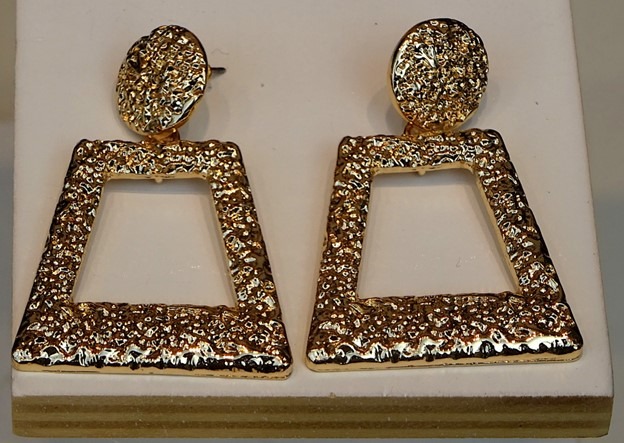I’m Not J. Lo
- March 13, 2024
- Posted by:
- Category: Uncategorized

Giving Access to Unexpected Coaches.
I recently had two nice events to attend and decided new earrings were in order. I’m not too fancy, so I was studying the ones in racks on the counter at Nordstrom. It was easy to pick the first set. I was contemplating the second when the salesperson came over. “Those are good,” she said of the first. She picked another pair from the back and said, “These would be good, too.” I liked her selection, but I picked a pair from the front and asked her what she thought. They were big. “Those are J.Lo,” she said. She studied me intently, and after a pause said, “You’re not J.Lo.” It was my turn to pause. “I am not J.Lo,” I agreed. I thanked her as I paid, not just for the selection help, but for making sure I knew who I was. Her reaction? “I could see it in your eyes that I could tell you.”
But that’s not the end of the story. I thought the whole thing was pretty funny and I shared it with someone that afternoon. She was incredulous that a stranger would be so forward. I was incredulous back. “Don’t you need people in your life who will tell you these things?” I asked. Not that we want everyone picking on us, but I think we need people to help us stay on the right path. It reminds me of my car, with all its alarms, sonar, and cameras. It tells me I’m in danger long before I back into someone. It starts warning me before the problem develops. I decided to test my theory and shared the story with three more people. It was a 50/50 split in the end. But I think I’m right.
Do we make it clear to some people in our lives that they have access to tell us constructively what we need to know? Not everyone, but are there one or two? If not, consider creating access pathways with a couple people you know would be good. This is especially important as people age and reach the point where many careers can start to decline. But here’s the catch. You can’t just tell someone they have access. You have to repeatedly demonstrate that you mean it, and then just say thank you when you get the feedback. Nothing else.
It’s great to have a coach but not everyone does. So take advantage of the unexpected ones around us, show with your face that you are approachable, and make access paths for a person or two whose feedback you value.
Julie Nielsen is the President & Chief Human Capital Officer at Oyster Organizational Development. Oyster puts big-company OD tools in the hands of small and mid-sized organizations to increase effectiveness and success. They work with for-profits and non-profits and are a national leader in compensation analysis & design, employee engagement ecosystems, and organizational assessment. Got questions? Contact Julie on LinkedIn.
